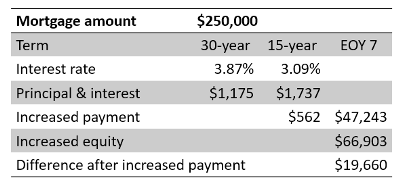Remember to Get Your Annual Credit Report
You are probably aware that Federal law entitles you to a free copy of your credit report annually by each of the three credit bureaus: TransUnion, Experian, and Equifax. By regularly looking at each of these reports, you can determine if there are any errors on them and be aware of your credit worthiness.
Instead of ordering all three at the same time, experts recommend that you stagger them throughout the year. This will let you look at your credit at three different times during the year instead of only once a year.
 |
An easy way make this happens on a timely basis is to set a recurring appointment on your digital calendar whether it is on your phone, your email program or a contact manager. Make the appointment to order a free credit report from www.AnnualCreditReport.com a recurring event to take place every four months. You’ll order one report from each of three companies once a year.
You can record that date and the bureau you ordered the last report in the appointment’s note section so that you’ll have a history and won’t try to order the same report twice in one year.
This isn’t just for people who are trying to clean-up their credit. This procedure allows you to monitor your credit to be sure that your report is accurate. You might even discover that someone is illegally using your good credit.







